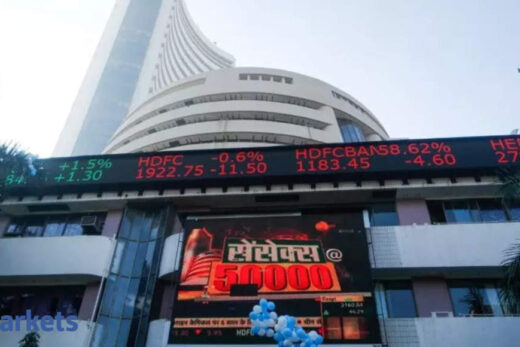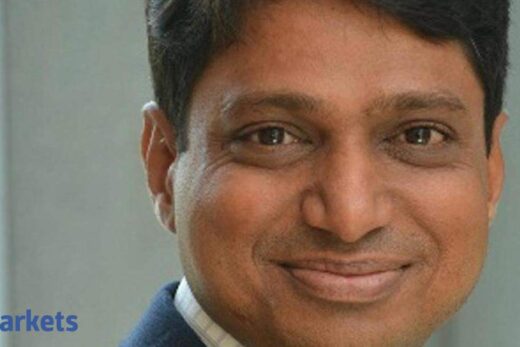How do you feel about the response to the Zomato IPO?
We got such a good response for the anchor book from both global and domestic institutional investors. We have tried our best to put this together and as I said earlier, it is great for Zomato, it is great for the Indian startup ecosystem. In addition to the excitement, it also puts a lot of responsibility on us and that is what we are also excited about.
There are 186 investors. Did you tell me that you would not allocate more than 3-4% a piece? What was the thinking or were you just so overwhelmed that you felt you had to give something to everybody?
They are a great set of investors and partners we have got on board. One wants to make sure that we did the right thing for Zomato and for them as well. We had not pre-decided anything. We went into the road shows making sure we interact with each one of them and share with them what we are building and what we are trying to do so that they can make the right call based on that.
We of course have global tech investors like Tiger Global, Dragoneer, Alkeon, D1, Altimeter coming in. We also have leading global superannuation pension funds by the Government of Singapore, Canada’s Pension Plan, Ontario, UK Superannuation. We also have global multi platform mutual funds and investors like BlackRock, Fidelity, Baillie Gifford. We also have marquee domestic institutional investors like SBI Mutual Fund, HDFC Mutual Fund, ICICI Pru Mutual Fund and many more. So, there are different categories and sets and characteristics of investors and we just want to make sure that we are able to get all the right partners on board for Zomato.
You have a clutch of high pedigree investors. For you, it must be heartening that you have got it at the higher price band. How will the retail investors make money from the Zomato stock? There are concerns over excessive cash burn in new businesses like e-grocery that you have been talking about?
Retail investors are smart and they will make the right decisions for themselves. There are two parts to the story. One is of course the fact that there is a current strength to the business that we have and the large future opportunity that lies in front of us. There is so much more that can come from restrained food consumption compared to what we do today. There is a large opportunity we have to build out and that is what is exciting.
Over the last eight quarters, we have seen how unit economics has panned out much better given the market has evolved, given the restaurants are operating and growing so well; customers have understood the value and the convenience that food delivery brings to them. A lot needs to be done in addition to trying on a few new experiments like grocery. Food is going to be core to us — food delivery, dining out, our raw material supply vis-à-vis hyper pure. We will continue to invest and build those core businesses while we try things like grocery and we will see how it pans out.
Grocery might have been a response to the Covid-19 and the lockdown, but the fact is that Zomato is a late entrant to grocery. You do not have a first mover advantage the way an Amazon, Flipkart, Reliance Retail or even Swiggy does. How will you do it differently this time?
The whole idea of doing this pilot was actually to understand what model works well and to be honest I think there is nothing like a late entrant to grocery right now. Grocery is such a big market in India, online grocery market is even lesser than food delivery in India today. That tells us that nobody till now has figured out the right model or scale as yet. So I do not think it is late. Everybody is looking for the right answers just like us.
Unit economics turned positive even before the draft red herring prospectus was filed for this IPO. Are you going to be as conscientious about unit economics going forward because you want to enter new markets, you want to look at inorganic growth?
We will continue to build the business like we have. We are very excited with the IPO but it would not change how we operate. There is a repeat part of our business which is maturing over a period of time which will better unit economics. There is a new part of our business which is new customers coming into food delivery, where we need to invest to change behaviour for a lot many new customers and improve the frequency of food delivery. That will continue like earlier as well. A mix of those will determine how it pans out in the future and if more and more new customers are going to come into the category, it is only a good thing for the category, not a bad thing.
Will you enter new geographies?
We are very focussed on India right now. There is a huge opportunity and that is what we are focussed on building right now.
I have been reading a lot of the old Zomato blogs and there is one common theme I keep hearing about being said by Deepinder Goyal — when he would write a blog and that Zomaro is 1% done. Is Zomato still 1% done today?
Absolutely, always.
You are still 1% done? We are talking about the anchor book response you saw, how you are creating history by going on Dalal Street as a first unicorn.
It is still just the beginning. There is so much more that needs to be done in terms of the opportunity in front of us. We are just 1% done.
Going forward, what will you like to talk about? A super app for food?
Even in the food delivery and dining out business, even in the Hyperpure business, it is very early days. If I ask this question to you and everyone: How many meals in a month do you actually consume from restaurants versus home, the answer will be very few. So there is so much more to be done.
Even though the gap exists in India versus America or even China or the UK, Zomato is simultaneously seeking a valuation which will help it break into the top five of the food tech listed companies!
That is what makes it very interesting. It seems like a large business but we are in a growth phase like any small business would be because of the opportunity in front of us and that is why India is so unique compared to international markets. The number of people transacting online now is mind-boggling compared to any other country. As this evolves, even though we might have captured a decent opportunity in the last five years, it is still skimming the surface right now because of what lies in front of us and that is what makes India unique.
Because the order value will also need to go up?
Not just the order value, the number of transactions also. Many people still do not eat food from restaurants at all or not enough. Imagine if 200-300-400 million people start consuming 10 to 15 meals a month from restaurants compared to just 40 million people on an average of two-three times a month! It is a huge delta and there is a lot that needs to be solved to get there but it was very difficult to say four years back where we will land up in four years and what all we will be able to solve. As we move along, it is an opportunity and we will see what all we need to solve to capture this large opportunity.
Food, work on your model and simultaneously launch a marketplace for e-grocery. Has Zomato has ambitions of being a serious B2B player?
From a B2B perspective, we are very focussed on restaurants right now. Our Hyperpure business, which is about supplying raw materials to restaurants, is making a big difference because we are able to help restaurants procure good quality raw materials at very competitive prices and even communicate to customers that these restaurants used good quality raw materials. The restaurants do not have to deal with 30 or 40 different vendors. They can actually work with Zomato and order everything online. That is one space we are working on and we will build it to be able to cater to more and more restaurants in the future.
In the red herring prospectus, there is a material update which has been given, that a Zomato subsidiary is going to be asking for a payment aggregator licence. What is the rationale behind that? You did experiment with models in the past in the UAE and India.
Payments is a very integral part of the business that we do today which is food delivery and even dining out. About food delivery, most of our transactions happen online today as they are prepaid. Even in dining out, as a pro member you can actually pay through Zomato to avail the offers. It is a very integral part of what we are doing. We need to build that payment stack for our core business and that is why we have actually applied for what you mentioned just now.
How can this be scaled up?
As more and more customers come in, we will enable them to have any transaction on Zomato that they have to do through online payments. It is already part of the core business that we are building, which is food.
So you will not look at fintech in a big way?
There is nothing more that I can share with you right now and it is part of the core food business that we are building.
You have done so many roadshows. When you were meeting potential investors, what were some of the common
questions or the common risks that were being perceived by them?
The questions of course are in terms of the opportunity in front of us and what all we need to do because India is a very large country. We are already present in 500 cities today and the key point is how do we get more and more people to try out services like food delivery and, even dining out. It is great to see what we have been able to do in the last five years but it will be interesting to see how much further we can go going forward.
The roadshow conversations were very interesting. It was great to see so much common understanding of what we are building because there are so many global benchmarks that are out there and also because people have been watching what is happening in India closely.
We always talked about having so many people in the country but now so many people are doing online transactions. I must say Covid has accelerated all of that for not just our business but a lot of businesses. People are anxiously excited as to where this can go, how big this could become and not just for Zomato, it is for most online businesses in India.
What about discounts and the cost of customer acquisition? Will it be business as usual for Zomato? Are you going to continue with the discounts and all of that?
It will be business as usual for Zomato. We are very excited with the IPO but we will continue to do business like we have always done. Food delivery or ordering from restaurants or dining at restaurants is a behaviour change. If you want people to do it more frequently and for that to happen, you have to have a trigger for customers. Giving subsidies to new customers is an important trigger that helps them adopt to a new behavioural category and we will continue to do that because once a customer orders food or dines out in a restaurant three, four times, it becomes part of their life and habit. But one needs to guide them and get them to get to that point.
You are also getting a scarcity premium in India, that is what the folks at Reddit are talking about?
I am sure they know more about it than I do. What we are getting is for the strength of the business today and the opportunity in front of us.
If the Zomato journey is like a five course meal, what course are you on?
So let me put it some other way; if Zomato was a movie you have just seen the trailer, the movie has not even started.
What did you order on Zomato?
A lot of things. I am glad to see all the choices that we have so that there is never a dearth of choices.



